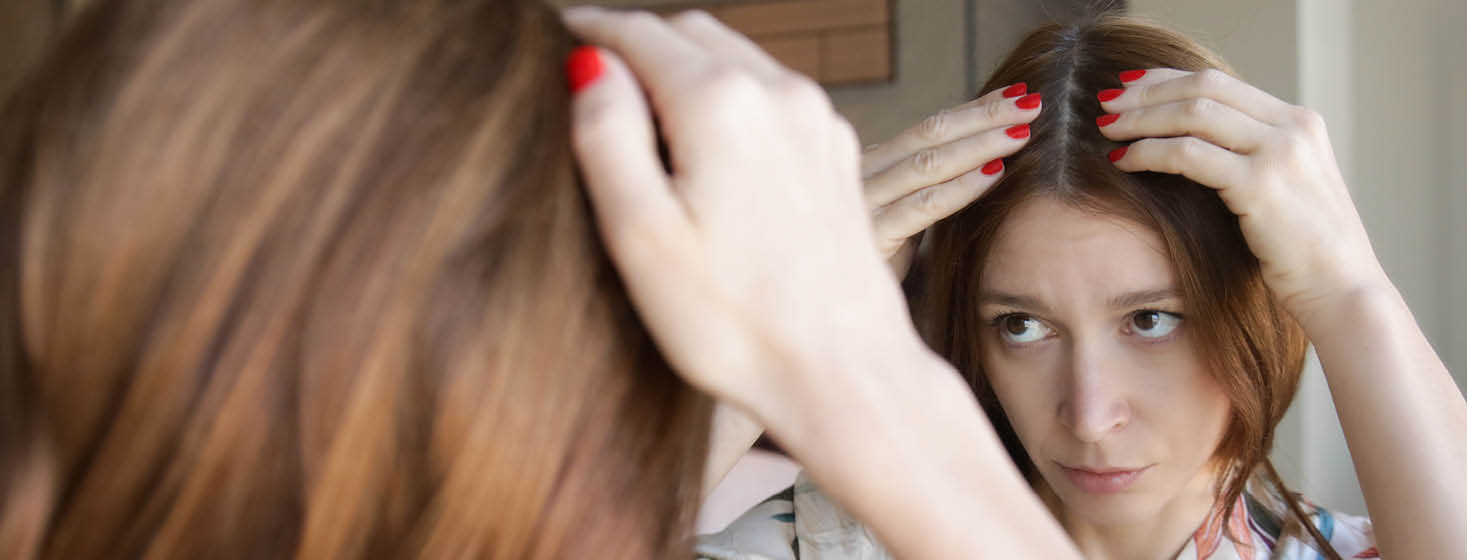
For many people, the health of the scalp is all but forgotten when worrying about their skin and hair care regime, taken for granted as something that more or less looks after itself – but for those who suffer dandruff, it can be somewhat problematic. Caused by an unusually high turnover of skin cells on the scalp, dandruff is a common affliction that not only causes cosmetic distress, but can leave the head itchy, dry, and irritated. So what can be done about it?
What is dundruff?
Dandruff is caused by unusually fast turnover of skin cells on the scalp. While turnover of skin cells happens on a constant basis, generally taking around a month, it may take just a few days in cases of dandruff, leading to unsightly white flakes throughout the person’s hair, and often dropping onto clothing. This can lead to self-esteem issues and psychological problems due to the lack of social acceptance and perception of lack of hygiene surrounding dandruff, despite its prevalence in the population and it often being very difficult to manage, with little available in the way of effective treatment.
What causes it?
Research is ongoing into its exact causes, though they appear to be numerous and vary from person to person. It may be as simple as a reaction to a person’s hair care products, particularly shampoo but also conditioner and styling product, leading to irritated or dry skin. For other people, it could be the result of food allergies and intolerances, or dermatitis affecting the scalp. There are a number of microbes that have also been implicated in the formation of dandruff due to their metabolic byproducts or ability to speed up the turnover of skin cells – these include various strains of staphylococcus, propionibacterium, and the fungi malassezia and candida. Some people find their dandruff flares up seasonally, and it almost always affects people post-puberty, being very rare in childhood.
So how to get rid of dandruff?
One of the most important things is the use of safe, natural hair care products that are unlikely to irritate the skin. These should exclude harsh detergents known to cause irritation and reactions such as sodium lauryl and sodium laureth sulfate, synthetic perfumes, and other stripping agents, and ideally also include soothing botanicals such as chamomile or calendula to help protect the skin, or soothing oils such as argan to help relieve irritated skin. There are numerous natural haircare ranges available free from these known synthetic irritants.
Diet can also play a role in the prevention of dandruff, as with any other skin condition. Including plenty of foods rich in skin-nourishing nutrients, or supplementing with those nutrients where diet proves difficult, may be prudent in assisting the body to maintain proper skin health. These include zinc, silica, vitamin C, and gelatin-rich foods, as well as those rich in essential fatty acids and fat-soluble vitamins A and E. Eating an array of vegetables, eggs, meat, fruit, nuts and seeds, butter, flaxseed oil, fish and bone broths will provide a wide range of these nutrients and may help maintain good skin health. Drinking plenty of water will assist with hydration of the skin.
Anti-dandruff products
There are also a wide variety of products available on the market designed to help with the management of dandruff. These include shampoos, conditioners and others with specific antifungal or antimicrobial ingredients, and products with zinc as an active ingredient. Argan oil is thought to help with the health of the scalp and may assist in the relief of symptoms as well as with prevention, and other oils such as coconut and olive have also been used topically for their moisturising and soothing properties. In terms of herbal medicine, chamomile and calendula teas may be used as hair rinses to soothe and calm inflamed and aggravated skin, and have been traditionally used to relieve scalp conditions such as dandruff. Anti-fungal and antimicrobial oils such as manuka and tea tree may also help combat underlying microbial causes.
HealthPost carries a wide range of products that may assist in the management of dandruff and relief of its symptoms. These include natural, targeted shampoo and conditioning products designed to minimise dandruff, as well as supplements including essential fatty acids, skin nutrient formulations, and various oils, tissue salts and other botanicals.
We’d Love Your Feedback
Do you experience irritated and itchy skin on your scalp?
Which natural products do you find working for you?

